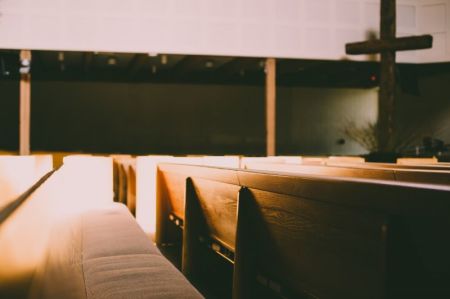ERLC praises new 'safe harbor' rule protecting churches that received small COVID-19 loans

The Small Business Administration and the U.S. Treasury issued a “safe harbor” this week to churches, businesses and other organizations that received small coronavirus relief loans under the CARES Act and now fear that their loan requests could be considered unnecessary.
Amid a changing landscape of requirements to receive federal Paycheck Protection loans, the Southern Baptist Convention’s Ethics & Religious Liberty Commission praised the SBA’s guidance Wednesday giving certainty to organizations that have received Paycheck Protection Program loans of less than $2 million.
The guidance states that borrowers of principal amounts of less than $2 million “will be deemed to have made the required certification concerning the necessity of the loan request in good faith” and will not be required to pay those loans back as long as they follow certain rules governing loan forgiveness eligibility.
When submitting a PPP application, borrowers must certify in good faith that “[c]urrent economic uncertainty makes this loan request necessary to support the ongoing operations of the Applicant.”
The SBA will review all loans with principal amounts over $2 million. If a review reveals that a borrower lacked an adequate basis to certify the need for the loan request, the government will seek repayment of the loan.
“SBA has determined that this safe harbor is appropriate because borrowers with loans below this threshold are generally less likely to have had access to adequate sources of liquidity in the current economic environment than borrowers that obtained larger loans,” the SBA guidance reads.
“This safe harbor will also promote economic certainty as PPP borrowers with more limited resources endeavor to retain and rehire employees.”
The SBA also said that the safe harbor for smaller loans will allow the agency to focus its resources on reviewing larger loans where the “compliance effort may yield higher returns."
ERLC Vice President for Public Policy and General Counsel Travis Wussow explained in a statement that many churches and nonprofit organizations “have applied for PPP assistance based on incomplete information about giving trends and the medium-range economic impact of the COVID-19 pandemic.”
“While organizations will still need to meet SBA’s loan forgiveness requirements in the future, they need not worry about whether their certification that the application was necessary will be second-guessed with the benefit of hindsight,” Wussow explained.
Cause for concern for some borrowers came two weeks ago when the SBA issued on April 23 an updated guidance for the loan program created to help businesses and nonprofits continue to pay their employees and other operating expenses during the pandemic.
“This guidance indicated that organizations would be required to consider other sources of liquidity before they could certify that the loan application was necessary,” Wussow noted.
“Because many nonprofit organizations and houses of worship had already received loans under the program, many have been actively considering not participating in the program because of an unclear set of standards. For instance, would nonprofit organizations need to deplete all unrestricted cash, including minimum reserve balances, before applying?”
The May 13 PPP guidance indicated that borrowers with loans of more than $2 million “may still have an adequate basis for making the required good-faith certification, based on their individual circumstances in light of the language of the certification and SBA guidance.”
If borrowers who have been flagged to repay the loans do repay the loans, then the SBA won’t “pursue administrative enforcement or referrals to other agencies based on its determination with respect to the certification concerning necessity of the loan request.”
Media reports in recent weeks have highlighted how some publicly-traded companies are gaining access to PPP funding despite having access to other sources of funding.
According to the Washington, D.C.-based law firm Venable LLP, the Treasury Department and the SBA then pressured businesses to return PPP loans by asking them to "tak[e] into account their current business activity and their ability to access other sources of liquidity sufficient to support their ongoing operations in a manner that is not significantly detrimental to the business."
The guidance from two weeks ago called out companies with “substantial market value and access to capital markets" and warned that they “should be prepared to demonstrate to the SBA, upon request, the basis for its certification."
Follow Samuel Smith on Twitter: @IamSamSmith
or Facebook: SamuelSmithCP





















